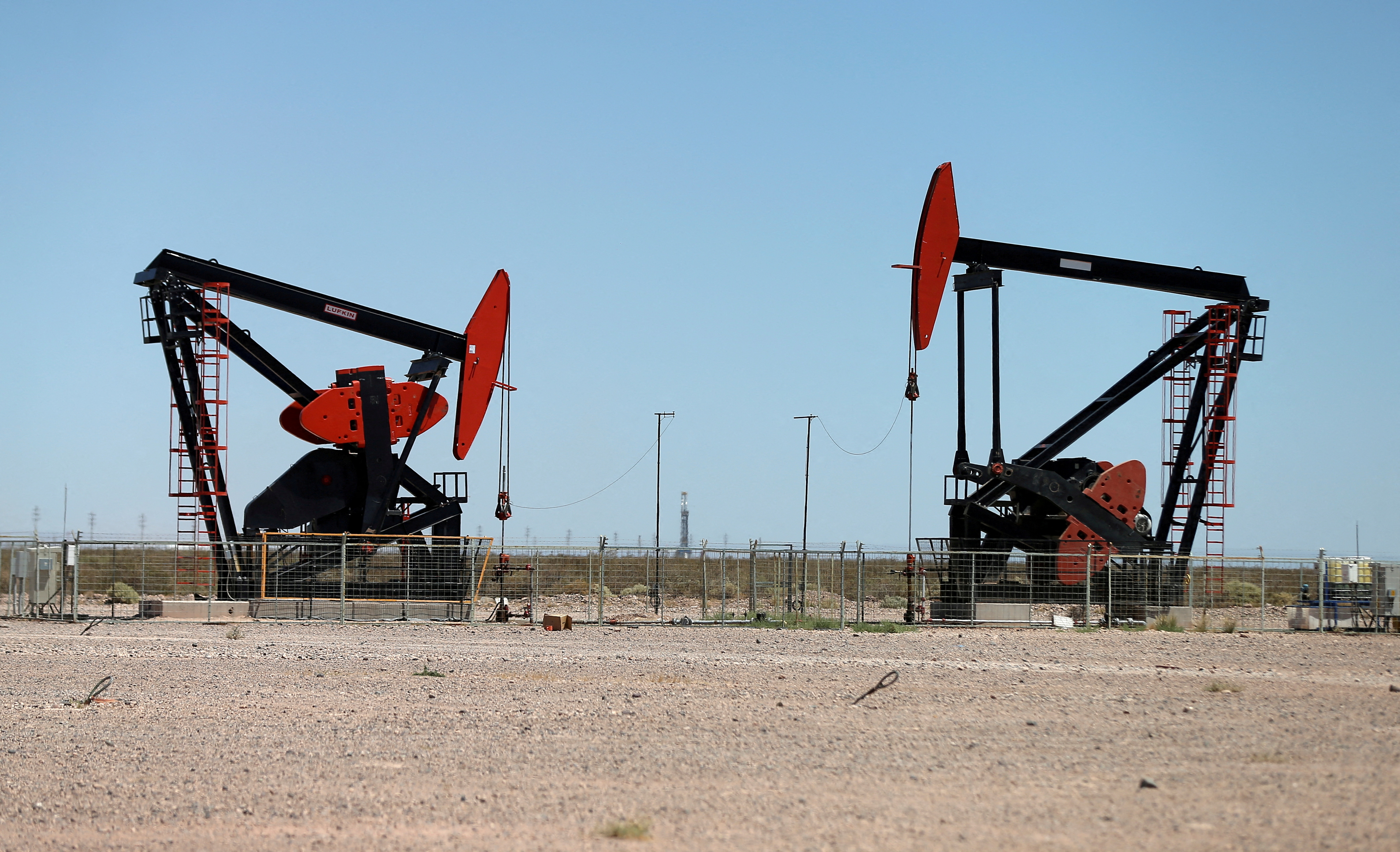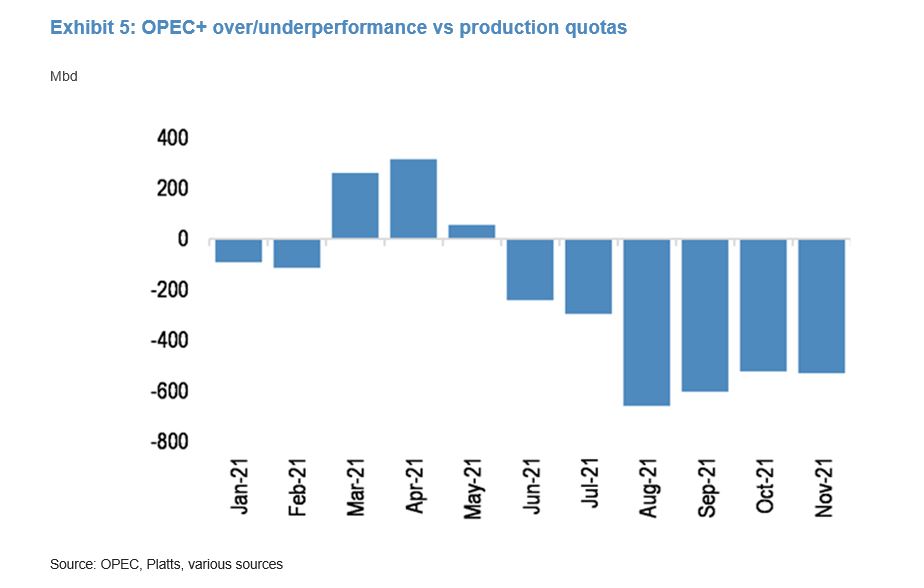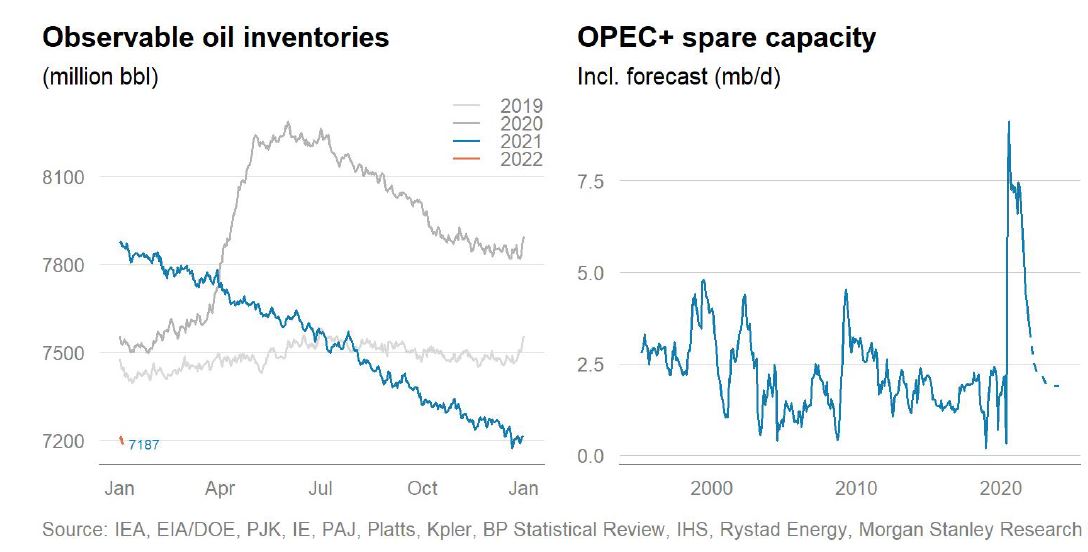
Oil pump jacks are seen at the Vaca Muerta shale oil and gas deposit in the Patagonian province of Neuquen, Argentina, January 21, 2019. REUTERS/Agustin Marcarian/File Photo
LONDON, Jan 12 (Reuters) – Oil prices that rallied 50% in 2021 will power further ahead this year, some analysts predict, saying a lack of production capacity and limited investment in the sector could lift crude to $90 or even above $100 a barrel.
Though the Omicron coronavirus variant has pushed COVID-19 cases far above peaks hit last year, analysts say oil prices will be supported by the reluctance of many governments to restore the strict restrictions that hammered the global economy when the pandemic took hold in 2020.
Brent crude futures traded near $85 on Wednesday, hitting two-month highs.
“Assuming China doesn’t suffer a sharp slowdown, that Omicron actually becomes Omi-gone, and with OPEC+’s ability to raise production clearly limited, I see no reason why Brent crude cannot move towards $100 in Q1, possibly sooner,” said Jeffrey Halley, senior market analyst at OANDA.
The Organization of the Petroleum Exporting Countries (OPEC) and its allies, a group known as OPEC+, are gradually relaxing the output cuts implemented when demand collapsed in 2020.
However, many smaller producers can’t raise supply and others have been wary of pumping too much oil in case of renewed COVID-19 setbacks. read more

Morgan Stanley predicts that Brent crude will hit $90 a barrel in the third quarter of this year.
With the prospect of depleting crude inventories and low spare capacity by the second half of 2022, and limited investments in the oil and gas sector, the market will have little margin of safety, the bank said.
JPMorgan analysts said in a note on Wednesday that they could see oil prices rising by up to $30 after the Energy Information Administration (EIA) and Bloomberg lowered OPEC capacity estimates for 2022 by 0.8 million barrels per day (bpd) and 1.2 million bpd respectively.
However, the bank added that it also expects oil prices to “overshoot” to $125 a barrel this year, and $150 in 2023.
Rystad Energy’s senior vice-president of analysis Claudio Galimberti said if OPEC was disciplined and wanted to keep the market tight, it could boost prices to $100.
However, he said he did not consider this a likely scenario and while oil could “momentarily” reach above $90 this year, downward pressure on prices would come from production increases in Canada, Norway, Brazil and Guyana.
Omani Oil Minister Mohammed Al Rumhi also said on Tuesday that the group doesn’t want to see $100 barrels of oil.
“The world is not ready for that,” Al Rumhi was quoted as saying by Bloomberg.

High oil prices, which also drive up gasoline and diesel prices, could keep inflation uncomfortably high well into 2022 amid snarled global supply chains, slowing the economic recovery from the pandemic in many countries.
Standard Chartered, meanwhile, has raised its 2022 Brent forecast by $8 to $75 a barrel and its 2023 Brent forecast by $17 to $77.
In a Reuters poll in late December, 35 economists and analysts forecast Brent would average $73.57 a barrel in 2022, about 2% lower than $75.33 consensus in November. The forecast shows the average price for the year, not the peak. read more
Brent prices have not touched $90 and $100 since 2014, when they were retreating from a high above $115 to as low as $57 by the end of the year.
